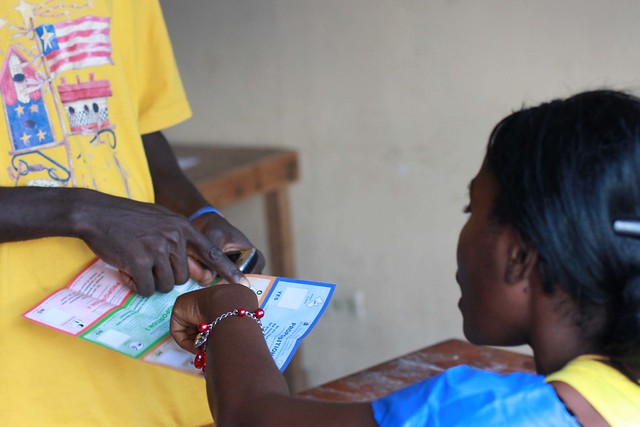Whenever discussing participation in Africa (as well as in other developing contexts) the issue of “who participates” often emerges. A constant in these conversations is an assumption that participation in the continent is strongly driven by material and immaterial resources (e.g. money, time). In other words, there seems to be a widespread belief, particularly among development practitioners, that the most privileged sectors of society are disproportionately more likely to participate than the least well-off.
In part, such an assumption is empirically grounded. Since the early 70s, studies have shown inequality in political participation, with the most advantaged groups being disproportionately more likely to participate. Considering that policy preferences between groups differ, unequal participation leads to the troubling possibility that public policy is skewed towards favoring the better off, thus further deepening societal differences and access to public goods and services.
However, often ignored is the fact that most of these studies refer to participation in traditional western democracies, notably the United States and European countries. But do these results hold true when it comes to participation in Africa? This is the question that Ann-Sofie Isaksson (University of Gothenburg) tackles in a paper published in Electoral Studies “Political participation in Africa: The role of individual resources”.
By looking at an Afrobarometer dataset of 27,000 respondents across 20 African countries, Isaksson’s findings challenge the standard thinking on the relationship between resources and participation:
(…) it seems the resource perspective does a poor job at explaining African political participation. If a resource is relevant for meeting the costs of participating, more of that resource should mean more participation. If anything, however, the estimations suggest that having little time (i.e. working full-time) and little money (i.e. being poorer) is associated with more participation.
Isaksson’s analysis is not confined to participation in elections, also examining non-electoral participation, i.e. attending community meetings. With regard to the latter only, there are modest effects associated with exposure to information (e.g. radio, TV, newspapers) and education. Yet, as the author notes, “the result that community attendance is higher among the poor remains”.
To conclude, as underlined by Isaksson in her paper, she is not alone in terms of findings, with other studies looking at Asia and Latin America pointing in a similar direction, slowly dispelling the myth of the role of resources for participation in developing countries. Development practitioners should start to take note of these encouraging facts.
***
P.s.: An earlier ungated version of the paper can be found here [PDF].

This doesn’t sound particularly surprising. The rich don’t need to participate in the kind of ways that Afrobarometer asks about, because they have other (more efficient, more effective) ways of making their influence felt. It’s long been a truism in many parts of Africa that “the rich get services, the poor get participation”.
Having said that, and without having read the paper, I suspect the pattern might well be different in rural and urban areas – higher participation overall in rural areas, and less difference between levels of participation on wealth grounds in urban areas.
Thank you for your comments Ben!
The argument that “the wealthy have better alternatives to influence government than participating” is often cited in one manner or another by practitioners in Latin America as well, and personally I think there’s a good deal of truth to that.
But I do not think that is a widespread perception shared in the development community, particularly among those who are not directly involved with the issue of participation. The perception of the opposite (i.e. that resources determine participation) seems to be reinforced in part by numerous accounts of elite capture of participatory instances in Africa and elsewhere. On that matter, it is interesting to note that these accounts suggest two things: i) that elites do not always limit their action to more “effective” means of influencing the government, and ii) participatory spaces are still perceived by elites – at least sometimes – as valid spaces to exert influence on public outputs. The contribution of Ann-Sophie’s work on the subject is to look at the data systematically, going beyond anecdotes and hunches that point one way or the other.
On rural / urban, you are spot on and consistent with prior literature: participation is higher in rural areas, although there are some interesting twists to it, another good reason to read the paper.
(BTW, on the “effectiveness” of means of participation, we should also note that in countries like the US, the better off also have much more efficient and effective ways to influence government than voting. Yet, they are still the ones most likely to turn out.)